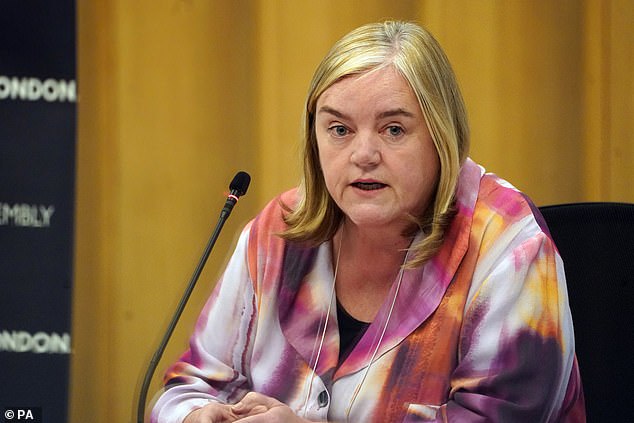Social care campaigners have rounded on Labour after it emerged that it could take a decade to fully implement its plan for the sector.
Ministers have set up an independent commission chaired by crossbench peer Louise Casey who began taking evidence this week from those with experience of the sector.
They will publish the commission’s terms of reference today, setting out the timescale she will work to.
The first phase will report in 2026, but some of the recommendations may not be put into effect for another ten years – 2036.
‘The Commission should produce tangible, pragmatic recommendations that can be implemented in a phased way over a decade,’ the document states.
Ministers say the use of the word ‘decade’ in the terms of reference is to align with the ten-year health plan.
But campaigners, charities and those representing social care criticised the delay and said families and older people would be ‘dismayed’ that change could take ten years.
Baroness Altmann, the former pensions minister, said: ‘It’s astonishing that anything on social care can take ten years – I’ve been talking about it for at least 20.

Ministers have set up an independent commission chaired by crossbench peer Louise Casey who began taking evidence this week from those with experience of the sector

The first phase will report in 2026, but some of the recommendations may not be put into effect for another ten years – 2036
‘Every government since the late 1990s has passed the baton to the next lot. Meanwhile, more and more elderly people have been denied the basic decent care you would automatically assume any advanced country would provide.’
Caroline Abrahams, charity director at Age UK, said: ‘Many older people and their families will be dismayed that the
Government envisages it could be a decade before we get a fully reformed social care system.’
She said that more than a million older people are living with an unmet need for care and the timeframe does ‘not reflect the human reality’.
The Local Government Association, which represents councils providing care, urged ministers to ‘revisit’ the current timescales ‘to reflect the urgency of the situation’.
The Homecare Association – the UK’s membership body for homecare providers – said the commission and the Government must ‘move faster than current timelines suggest, to recognise the seriousness of the issues facing care providers’.
There are also concerns that Baroness Casey has other roles which could impact on her work on social care. She is also overseeing a national audit into grooming gangs in England and Wales and holds non-executive director roles in government.
The Prime Minister’s official spokesman said the duties ‘don’t interrupt each other’.
The first phase of the commission will focus on NHS and local authority funding for social care services. The second phase will make longer-term recommendations for the ‘transformation of adult social care’.







